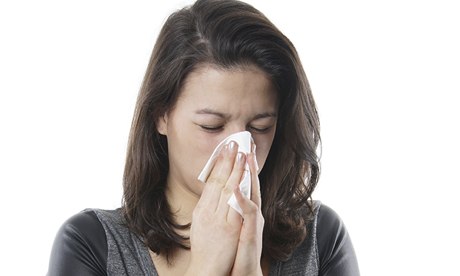
Do you have a heavy cold, stomach upset or headache? Are you anxious about going off sick? Last year's absence management survey from the Chartered Institute of Personnel and Development showed nearly a third of organisations had more people coming to work when ill than in 2011. If you've got a deadline or there's a threat of redundancy, who cares if your dripping nose infects fellow workers? Staying home is for wimps, isn't it?
The solution
If you're not likely to be productive, if you're contagious, or if you're a danger to others (a bus driver with a migraine) then you should stay home.
If you're sick you don't work as well and you may end up taking more time off later on. It isn't easy to measure productivity but studies have looked at how people who feel ill and still come to work do in terms of concentrating, communicating with colleagues, needing to repeat work or working more slowly. Unsurprisingly, they show that if you feel ill, you're less productive – possibly by as much as a third.
An article in the Harvard Business Review in 2004 said some $150bn is lost each year by US businesses through common complaints such as hay fever, headaches and heartburn. This brand of presenteeism – where employees underperform because of ill health – is calculated in the UK to cost £15.1bn a year from mental health-related conditions alone.
There's also research suggesting that presenteeism is related to sick leave at a later stage – suggesting that people may only be putting off the inevitable.
Your decision will obviously depend on the problem. You may be up to going in if you have a cold without a fever, but at the very least avoid infecting others by sneezing into a tissue and washing your hands for 20 seconds with warm, soapy water and drying them properly.
If you have full-blown flu, you'll be too weak to try to get to work. But if you are a superhuman, bear in mind advice from public health doctors that you should stay at home until you've had no fever for 24 hours. Research using modelling rather than direct observation suggests staying at home for two days with flu reduces spread at work by 40%.
Headaches vary in severity but trying to work through a migraine accompanied by visual disturbances is not going to be productive. If you are vomiting, with or without diarrhoea, you should not go to work until you've had neither for 24 hours because your hands may contaminate work surfaces.
Of course, if you don't get paid unless you work, you may have to be at death's door before you stop. Even so, sick leave taken judiciously may get you better sooner.

